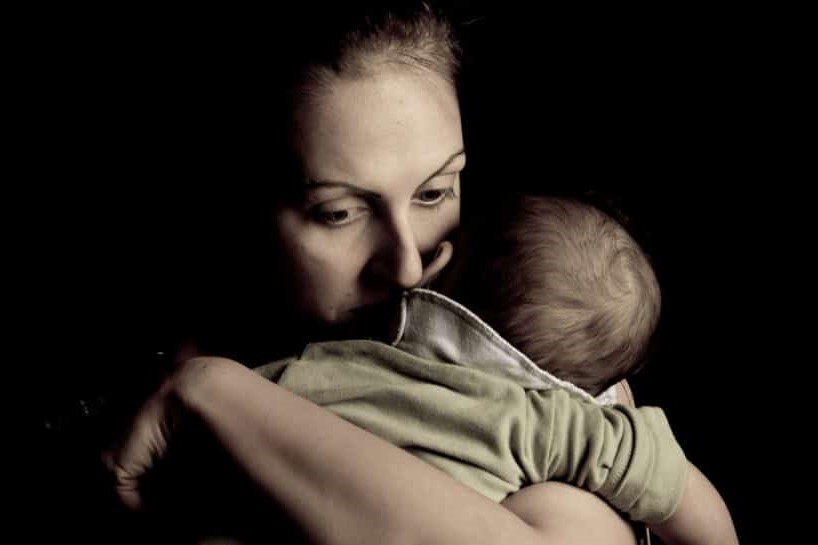
What is postpartum depression?
Postpartum depression is a mood disorder. Together with anxiety disorders, it is the psychiatric disorder most frequently encountered in the perinatal period (the period immediately preceding and following birth)
Women suffer from depression twice as often as men, and the pregnancy period and post-partum are moments of life marked by greater vulnerability for an onset or reoccurrence of a depressive condition.
Depression is recognised as perinatal when it occurs during pregnancy or in the first four weeks after birth.
However, numerous studies agree on a clinical condition that can occur from pregnancy up to 12 months after delivery.
It should be distinguished from a rather common reaction called the ‘baby blues’ characterised by a feeling of melancholy, sadness, irritability and restlessness, which peaks 3-4 days after delivery and tends to fade within a few days, generally within the first 10-15 days after delivery and is mainly due to the drop in oestrogen and progesterone and the physical and mental exhaustion caused by labour and delivery.
PPD, on the other hand, presents more intense and long-lasting symptoms and can have serious consequences for the woman herself, her children and the entire family.
What is the incidence of postpartum depression?
The incidence varies from 6% to 12% with a prevalence in the first three months after childbirth, but there are also cases in the second half of the year after childbirth, so the child’s entire first year should be considered at risk.
Who is susceptible to postpartum depression?
Women who have suffered from anxiety or depression during pregnancy, women with a previous history of psychiatric disorders, women who have recently experienced stressful events (bereavement, domestic violence, perceived inadequate social and family support, work and economic problems), women with a previous history of perinatal depression, and women with psychiatric illnesses among the members of the parental environment are more susceptible to postpartum depression.
Postpartum depression, what are the symptoms?
The symptoms are the same as those of a depressive disorder.
The new mother may present a depressed mood for at least two weeks, lack of pleasure and interest in usual activities and at least five of these symptoms
- sleep disturbances (insomnia or hypersomnia) and/or appetite,
- motor hyperactivity or lethargy,
- fatigue or lack of energy,
- feelings of guilt,
- low self-esteem,
- feelings of helplessness and worthlessness,
- reduced ability to think or concentrate,
- recurrent thoughts of death.
Postpartum depression can take on different configurations depending on the specific experience of each one
Some women may experience anxiety, guilt and thoughts of harming themselves, while others may experience obsessive thoughts, anger and feelings of loneliness.
Some women may feel unable to control their obsessive thoughts such as feeling like a failure, fear of hurting themselves, reporting excessive worries about the baby.
Postpartum depression can make the new mother feel overwhelmed by the responsibilities of caring for the baby and its demands.
Women feel weak and vulnerable and are displaced when in what is normally perceived as a joyful moment they also experience negative feelings towards their child and feel inadequate or abnormal in the face of these emotions.
How to deal with it?
Making a self-diagnosis is not easy: sometimes the discomfort is strong and evident, while at other times the symptoms are more subtle, perhaps bordering on a strong tiredness that is quite normal in the first months.
It is important to pay attention to what you are feeling, not to minimise, underestimate or hide your feelings.
The advice is to go to the doctor even if only in case of doubt, because when one is certain of feeling ill, it means that the malaise is much more structured and has already affected one’s quality of life.
The sooner one intervenes, the better one gets.
It is necessary to seek professional help, particularly from specialist services dealing with perinatal psychopathology in the area.
In fact, a correct and thorough medical assessment and the setting up of an individualised treatment is necessary, which may include drug therapy and/or a supportive psychological course.
There are drugs that are compatible with pregnancy and breastfeeding that are not toxic for the child and can be taken for as long as it takes to get over depression.
The consequences of untreated depression are potentially more harmful than the possible adverse effects of taking medication.
Women suffering from postnatal depression are not bad mothers, they are struggling mothers who need support.
Therefore, asking for help for oneself also means taking care of one’s child.
Read Also:
Emergency Live Even More…Live: Download The New Free App Of Your Newspaper For IOS And Android
How To Recognise Depression? The Three A Rule: Asthenia, Apathy And Anhedonia
Postpartum Depression: How To Recognise The First Symptoms And Overcome It
Postpartum Psychosis: Knowing It To Know How To Deal With It
Schizophrenia: What It Is And What The Symptoms Are
Childbirth And Emergency: Postpartum Complications
Intermittent Explosive Disorder (IED): What It Is And How To Treat It
Management Of Mental Disorders In Italy: What Are ASOs And TSOs, And How Do Responders Act?
How Cognitive Behavioural Therapy Works: Key Points Of CBT
Emergency-Urgency Interventions: Management Of Labor Complications
Seizures In The Neonate: An Emergency That Needs To Be Addressed
Schizophrenia: Risks, Genetic Factors, Diagnosis And Treatment
Why Become A Mental Health First Aider: Discover This Figure From The Anglo-Saxon World
Attention Deficit Hyperactivity Disorder: What Worsens ADHD Symptoms
From Autism To Schizophrenia: The Role Of Neuroinflammation In Psychiatric Diseases
Schizophrenia: What It Is And How To Treat It
New Epilepsy Warning Device Could Save Thousands Of Lives
Understanding Seizures And Epilepsy
First Aid And Epilepsy: How To Recognise A Seizure And Help A Patient
Childhood Epilepsy: How To Deal With Your Child?
Epileptic Seizures: How To Recognise Them And What To Do
Oct. 10, World Mental Health Day: In Pregnancy And Postpartum, The Importance Of Not Feeling Alone


